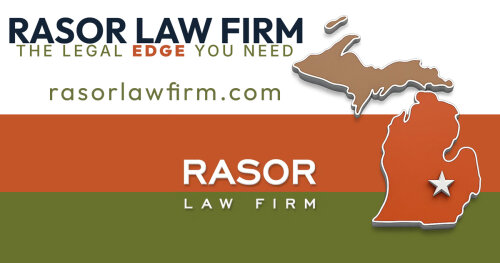Best Whistleblower & Qui Tam Lawyers in Maryland
Share your needs with us, get contacted by law firms.
Free. Takes 2 min.
Or refine your search by selecting a city:
List of the best lawyers in Maryland, United States
About Whistleblower & Qui Tam Law in Maryland, United States
Whistleblower and Qui Tam laws are legal mechanisms that empower individuals to report fraud or misconduct, particularly in cases where government funds are being misused. In Maryland, these laws offer protections and, in some cases, financial rewards for people who take action against illegal activities such as healthcare fraud, procurement fraud, or misuse of public resources. The term "Qui Tam" comes from a Latin phrase that allows a private citizen to bring a lawsuit on behalf of the government, often under statutes like the federal False Claims Act or Maryland’s False Claims Act. Whistleblower protections at both the state and federal levels are designed to prevent retaliation against those who report wrongdoing.
Why You May Need a Lawyer
Navigating whistleblower and Qui Tam cases can be complex and intimidating. You may need a lawyer for a variety of reasons, including:
- Understanding whether you have a valid whistleblower or Qui Tam claim under Maryland or federal law
- Ensuring you meet all reporting requirements and statutes of limitations
- Protecting your identity and employment from potential retaliation or discrimination
- Maximizing the possibility of a financial reward if your information leads to a successful recovery
- Guidance through the legal process, which can involve investigations by the government and court proceedings
- Negotiating any settlements or relator’s shares you may be entitled to
- Dealing with possible counterclaims or defense tactics from an employer or defendant
- Understanding your rights under both Maryland and federal whistleblower statutes
Local Laws Overview
Maryland has adopted its own False Claims Act, which closely aligns with its federal counterpart but is specifically tailored to the misuse of state funds. Here are some key aspects:
- The Maryland False Claims Act allows private individuals, often called "relators," to file lawsuits on behalf of the state involving fraud against state or local government programs.
- Whistleblowers may be entitled to a percentage of recovered funds if the lawsuit is successful.
- Protection against retaliation is provided for employees who report suspected fraud or cooperate with investigations.
- Misdemeanor and civil penalties can be imposed for filing frivolous or malicious claims.
- Maryland’s law covers most types of fraud against state and some local government entities, including healthcare, contracting, and grant fraud.
- Claims generally must be filed within six years of the fraud or within three years after the government knows about the fraud, but not more than ten years from when the violation occurred.
- The Office of the Maryland Attorney General plays a key role in investigating and pursuing False Claims Act cases.
Frequently Asked Questions
What is a Qui Tam lawsuit?
A Qui Tam lawsuit allows a private individual to sue on behalf of the government when they have evidence of fraud against government programs or funds. If successful, the individual may receive a percentage of the recovered funds.
Who can file a whistleblower or Qui Tam lawsuit in Maryland?
Generally, any private person with original information about fraud against Maryland or its local governments can file a claim. There are some exceptions for people who participated in the wrongdoing.
What types of fraud are covered by Maryland’s False Claims Act?
Covered types include healthcare fraud, procurement fraud, grant fraud, billing false statements, and any other attempts to knowingly submit fraudulent claims for payment from government funds.
What protections does Maryland provide for whistleblowers?
Maryland law prohibits employers from retaliating against employees who report suspected fraud, participate in investigations, or cooperate with government enforcement actions.
How much of a reward could a whistleblower receive?
If the government intervenes in the lawsuit and it succeeds, whistleblowers can receive between 15 and 25 percent of the proceeds. If the government does not intervene, the share can range from 25 to 30 percent.
Is it possible to remain anonymous when filing a Qui Tam lawsuit in Maryland?
Your identity is usually kept confidential during the early stages of the investigation, but it may eventually become public if the case proceeds to litigation.
Does filing a claim mean I will have to go to court?
Not necessarily. Many cases settle or are resolved before trial. However, if the case goes forward and you remain involved, you may need to testify or participate in court proceedings.
What is the statute of limitations for filing?
Generally, actions must be filed within six years of the violation or within three years after the government knew or should have known about it, but no more than ten years after the fraud occurred.
Can I be sued for making a false claim as a whistleblower?
Yes. If you intentionally make a false or malicious claim, you can be subject to penalties, including civil damages and possible criminal charges under Maryland law.
Can I file a Qui Tam lawsuit if the government has already started investigating the fraud?
You may still be able to file, but if the government already has the same information and has begun its own investigation or case, you might not be eligible for a reward.
Additional Resources
If you are considering becoming a whistleblower or filing a Qui Tam lawsuit in Maryland, these organizations and resources can provide helpful information and support:
- Office of the Maryland Attorney General - Medicaid Fraud Control Unit
- United States Department of Justice, Civil Division - Fraud Section
- National Whistleblower Center
- Maryland State Bar Association - Lawyer Referral Service
- Maryland Judiciary's resources for self-represented litigants
- Local legal aid organizations experienced in employment or whistleblower law
Next Steps
If you believe you have witnessed or uncovered fraud against the government in Maryland, you should consider the following steps:
- Document as much information as possible about the suspected fraud, including dates, documents, and names of individuals involved.
- Consult with an attorney experienced in whistleblower and Qui Tam law. A qualified lawyer can help evaluate your case, protect your rights, and guide you through the process.
- Refrain from discussing your findings with coworkers or supervisors until you have received legal guidance, as this could jeopardize your protections or the case itself.
- If you fear retaliation, talk with your lawyer about available legal protections and consider consulting with local labor or employment authorities.
- Prepare to participate in any investigations or proceedings that may arise from your claim, always with the support of your lawyer.
Whistleblower and Qui Tam actions play a vital role in combating fraud and protecting public resources. Legal assistance is crucial for ensuring your rights are secured and your efforts are effective.
Lawzana helps you find the best lawyers and law firms in Maryland through a curated and pre-screened list of qualified legal professionals. Our platform offers rankings and detailed profiles of attorneys and law firms, allowing you to compare based on practice areas, including Whistleblower & Qui Tam, experience, and client feedback.
Each profile includes a description of the firm's areas of practice, client reviews, team members and partners, year of establishment, spoken languages, office locations, contact information, social media presence, and any published articles or resources. Most firms on our platform speak English and are experienced in both local and international legal matters.
Get a quote from top-rated law firms in Maryland, United States — quickly, securely, and without unnecessary hassle.
Disclaimer:
The information provided on this page is for general informational purposes only and does not constitute legal advice. While we strive to ensure the accuracy and relevance of the content, legal information may change over time, and interpretations of the law can vary. You should always consult with a qualified legal professional for advice specific to your situation.
We disclaim all liability for actions taken or not taken based on the content of this page. If you believe any information is incorrect or outdated, please contact us, and we will review and update it where appropriate.
Browse whistleblower & qui tam law firms by city in Maryland
Refine your search by selecting a city.









